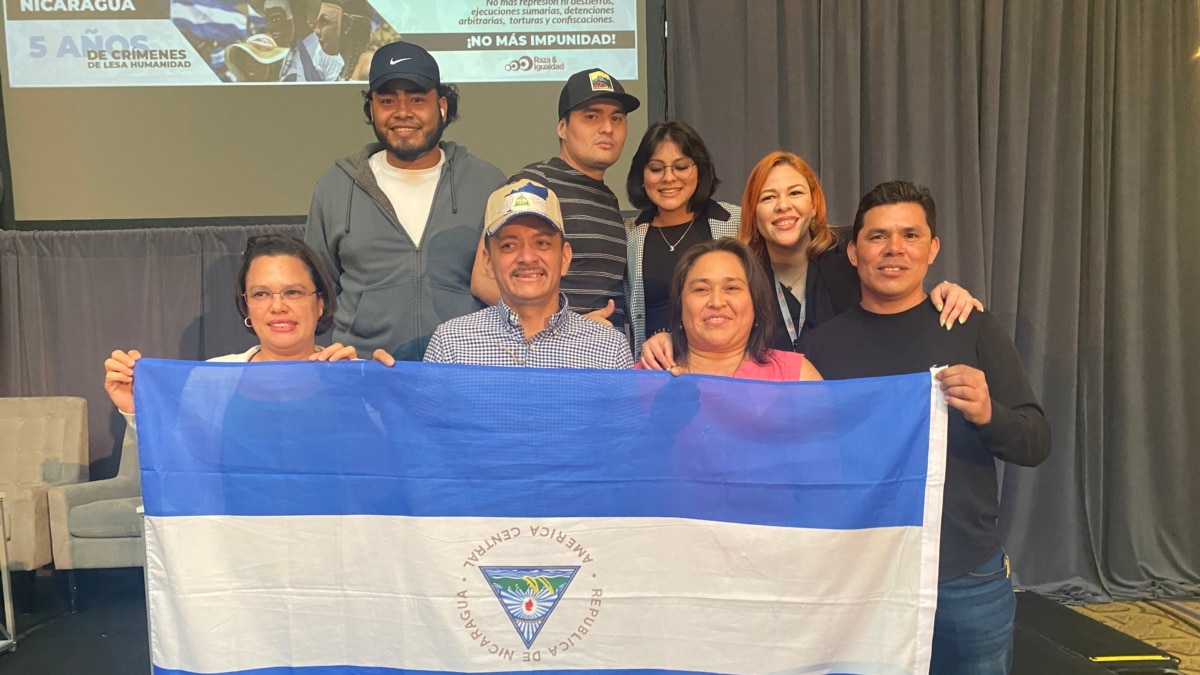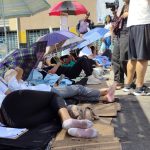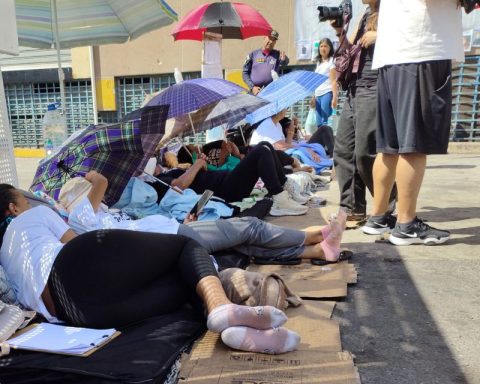Dozens of former Nicaraguan political prisoners who were transferred to the United States and stripped of their nationality are advancing in their legal procedures to be able to work, in the hope of reuniting with their families they left behind in Nicaragua.
Through the collaboration of the United States, on February 9, the Nicaraguan government released 222 political prisoners, who were transferred to Washington.
“Thank God we have resolved what the documents are. We have a work permit, we have the social security (number) and now we are opening the bank accounts for the respective payment for when we are working, ”he told voice of america former political prisoner Carlos Bonilla.
Bonilla lives in Washington DC along with three other former political prisoners. A caring American provides them with room and board on a voluntary basis.
“The plans I have for the moment are to collect money and find ways to bring my daughter and my sisters to make a new life here,” said Bonilla, who would like to stay in the US capital. “I haven’t seen other places, but I feel comfortable where I am,” she added.
Former prisoner Cristian Meneses, who lives with Bonilla, explains that he also wants to start working as soon as possible and says that he would like to return to Nicaragua in the future.
“It was not our plans to leave our country, nor are it our plans to stay here,” he said.
Former Nicaraguan political prisoner and member of the peasant movement Karla Escobar points out that there are mixed feelings among the released compatriots transferred to the US, because they miss their families.
Escobar lives in Texas, but hopes to move to the US capital to work while studying for a degree in physical therapy.
She says that during her imprisonment, which lasted three years, she was subjected to repeated psychological torture, for which she now receives psychic support.
“Some of us already have psychological help. We are 222, they cannot cover all of us together, but gradually, ”she said.
Escobar said that the former political prisoners have received bonuses of $100 to buy food.
Operation Guardabarranco
Most of the former political prisoners already have a work permit. “With that, they can now work legally in the United States and can start a whole process to initiate political asylum,” he explained to the VOA Carlos Quesada, executive director of the International Institute of Race, Equality and Human Rights, based in Washington. DC
The organization worked with the State Department in the transfer and support of the freed Nicaraguans, a process that Quesada describes as “exciting” and which was dubbed “Operation Guardabarranco.”
“The Guardabarranco is the national bird in Nicaragua. We are a human rights organization, but we were asked to find a hotel, give them per diems, get them phones, coats, and buy the tickets to relocate them to other parts of the United States,” said Quesada, who also points out that of the 222 prisoners released, 220 they stayed in the US and two decided to settle in Costa Rica.
Secretary of State Anthony Blinken described the release as “a constructive step” on the path “to address human rights abuses in Nicaragua.”
The Nicaraguan authorities stripped those released of their nationality and affirmed that they were sentenced for “acts that undermine the independence, sovereignty and self-determination of the people by inciting violence, terrorism and economic destabilization.”
Connect with the Voice of America! Subscribe to our channel Youtube and activate notifications, or follow us on social networks: Facebook, Twitter and Instagram.
















